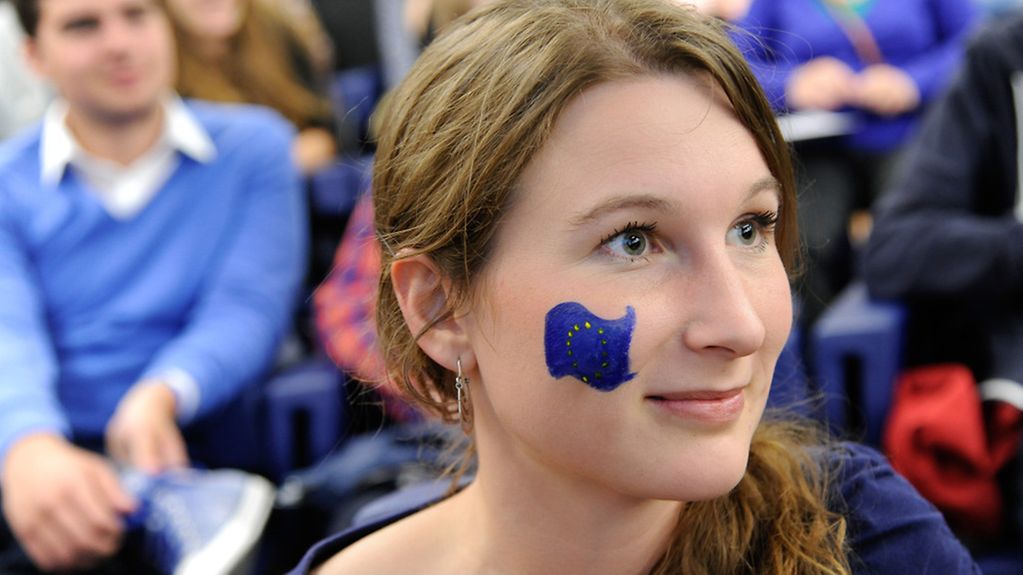European Youth Programme
See the world, learn new languages, become independent – the European Youth in Action programme gives young people the opportunity to learn for life. It offers the bonus of the Youthpass certificate, which documents the new skills acquired.
2 min reading time

The Youthpass documents the achievements of young people in numerous European programmes.
Photo: European Union 2014 - EP
A human rights workshop on Sicily? A holiday camp in the Czech Republic? Or perhaps a bi-national workshop in France? The range of international exchange programmes for young Europeans is vast. But to what extent do the young people actually benefit from the programmes? And how can they use this experience? The Youthpass allows participants to record what they have learned.
Huge success for a small certificate
The Youthpass is a record of learning achievements. It lays out what the young people did within their project. Participants can thus identify the skills they have acquired. This allows them to make better use of the new skills at a later date, at interview for example. The Youthpass is also confirmation that the holder has indeed participated in an event.
The Youthpass has been issued to young people for ten years now. Within the framework of the Youth in Action programme, and promoted by the EU’s Erasmus+ programme, it documents the learning achievements of Europe’s young people, whether they have been involved in youth encounters, European Voluntary Service, youth initiatives or training courses. In 2016 alone, more than 120,000 young women and men made use of the Youthpass.
The Youthpass opens doors
The Youthpass specifies both the type of project and the objectives and activities of the participants. The contents are precisely regulated. The focus is on ‘key competencies for lifelong learning’ – A European framework of reference with ten key points. Participants are assessed in terms of:
- Communication in the mother tongue
- Communication in foreign languages
- Mathematical skills and basic scientific and technical skills
- Digital skills
- Learning skills
- Social and civic skills
- Sense of initiative and entrepreneurship
- Cultural awareness and expression.
After the programme participants enter the aspects that the project has helped develop – and those that were not honed. The Youthpass thus details the areas in which participants benefitted from a project. Sometimes a short holiday can open the door to the next stage of training or professional development.
Erasmus+ - the EU programme for education, training youth and sport
The European Union’s Erasmus+ programme promotes education, training, youth and sport. It has a budget of about 14.8 billion euros at its disposal. Erasmus+ embraces a number of sub-programmes, including Leonardo da Vinci in the field of technical and vocational education and training, Erasmus at university level and Youth in Action in the field of youth promotion.
Youth in Action addresses young people in the field of non-formal and informal education. This includes voluntary service, youth encounters and strategic partnerships. The number of projects is rising steadily. The Erasmus+ Youth in Europe programme promotes not only youth encounters but also the European Voluntary Service, mobility for youth workers, structured dialogue and transnational youth initiatives. Participants in all these programmes can make use of the Youthpass.